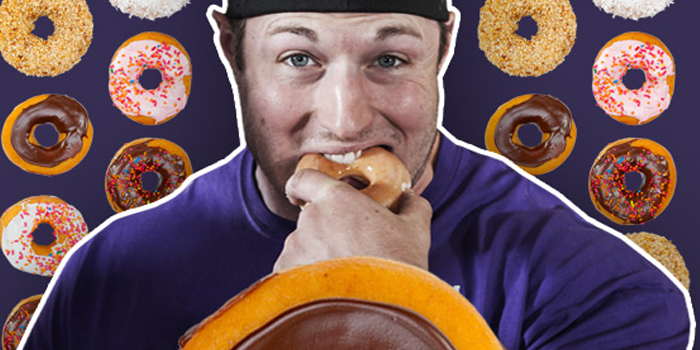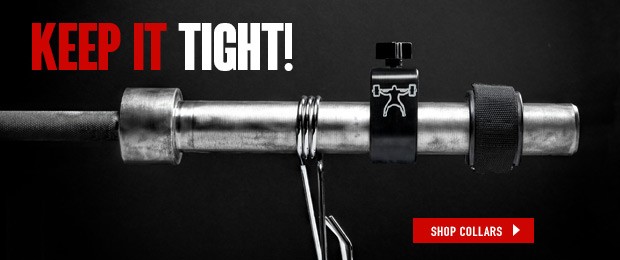
When it comes to nutrition, most of what I know was learned by doing. With no formal exercise or nutrition science academic training, I've relied on trial and error while under the guidance of a couple of good nutrition coaches. Even with oversight, I managed to make some mistakes that slowed me down and forced backward steps.
Mistake #1: Too Strict for Too Long
In 2018 I made a major shift in my nutrition and was laser-focused on dropping a couple of weight classes. I went into this phase knowing that I wanted to lose weight rapidly, overshoot my goal a bit, and then rebound to a sustainable spot. I didn't trust myself to slowly lose weight over a long period of time, so I went all in!
It worked really, really well, until I hit a wall. After a couple of months of ever-increasing activity levels and decreasing calories, I had pushed too hard for too long. I remember the night that it happened. I had just gotten back from a run, my wife wasn't home, and I was getting ready to eat my planned dinner. My body was screaming for some extra food, and I knew why. I knew I was super depleted and that a couple of hundred extra calories would be good for me.
A couple of hundred extra calories turned into a dozen granola bars, a package of Oreos, six breakfast sausage patties, and three dinner plate-sized pancakes cooked so fast that I ate them "medium rare." I think I remember some Cheetos and potato chips there too, but I can't be sure. It was all a blur by the end, I was sick for the rest of the week, and my stomach was destroyed.
The problem was how hard I had pushed and for how long. My deficit was too big, and I hadn't allowed myself any extra food for weeks. I also hadn't told my nutrition coach, Tucker, about any of it. I hadn't shared how run down I felt. I did come clean on the crackhead binge, though, and he responded that I was an idiot and needed to tell him how I was feeling. Had he known, he would have thrown in a refeed meal or two to prevent the breakdown.
Lesson learned: Communicate and realize when the body has had enough. A few hundred grams of clean carbs would have prevented my gluttony. It wasn't a huge setback, I rebounded after a few days, but I never want to be that sick from eating again.
Mistake #2: Too Much Change
The first go-around I had with actually making an effort to eat a decent diet and pay attention to my nutrition was in 2017. I had no idea what I was doing and decided to try a keto diet—no carbs, moderate protein, and a bunch of fat. Got it.
It worked and worked well. I ate a bunch of eggs, cheese, bacon, beef, and so on. It wasn't terribly hard to stick to the diet, and the bodyweight kept falling off—too much weight. I was lifting in gear at the time and needed to stay a certain bodyweight so my gear would fit. I only wanted to drop a few pounds but I couldn't stop the downward trend. My instructions were to keep adding fat until my weight stabilized. I got up to about 400 grams of fat a day. Do you understand how gross that is to eat? It's gross. Super gross. I hated it, and I hated eating only fats and meats. I wanted more dairy, some grains and some bread. I felt that I could better control my weight class and how the gear fit if I was on a more traditional diet, and that was true.
Don't get it twisted. I'm not a dietician and have zero interest in debating the merit of ketogenic dieting. For some, it seems awesome, and they love it. For me, it was way too much change to do for the long haul. I knew after a couple of months that there was no way I was going to stick to that style of eating forever. It didn't allow me to do what I wanted to do in the gym, and I hated eating that way. I changed course and was much happier for it.
Mistake #3: Too Many Meals, Too Often
This mistake goes back to the aggressive weight loss in 2018. Tucker worked my calories down slowly over a several week period, which was a very effective approach. I got used to the change slowly. I didn't feel super hungry or restricted until the lowest four weeks or so. At that point, he had cut out over 1500 daily calories, and my activity level was super high. I was hungry most of the time, as expected.
My first reaction was to increase the number of meals I was eating. My logic was that I could spread those calories out through the day and not be hungry because I would be eating more often. I got to a point where I was eating about every 90 minutes, and the meals were 150-250 calories each.
Big mistake.
Those tiny little meals did two things. First, I watched the clock obsessively. Counting down the minutes until I could eat again created bad behavior and damaged my relationship with food. I simply thought about it way too much. Second, all those small meals made me hungrier. I'm sure there is some science here that a nutritionist could explain, but in a nutshell, this vicious cycle stimulated my appetite. I was left unsatisfied and hungrier than before, staring at the clock until the next time I could eat.
The fix was easy. I went back to five meals a day and have stuck to that ever since, even with increased calories. It's easier for me to manage, and the meals are big enough to satisfy me. Five meals are frequent enough that I don't snack either. I know my next meal is coming soon, so I just wait.
No Regrets
I have zero regrets in making these mistakes. I've learned that nutrition and dieting is as much an art as it is a science. So much about eating has to be learned through experience. Making mistakes along the way and experimenting on myself taught me what felt the best. It taught me what I could stick to for the rest of my life, and what style seems to best fuel my performance. I don't think I have it all figured out or that I've grasped what 100 percent optimal is, but I feel great—I'm strong, and my weight is well controlled.
In closing, I encourage you to experiment and try some different styles of eating. Make some mistakes and learn how your body responds. Then learn from it, apply the lessons, and be both a better athlete and a healthier human.











1 Comment